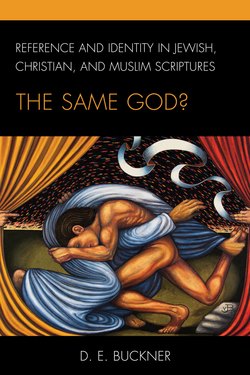Reference and Identity in Jewish, Christian, and Muslim Scriptures

Реклама. ООО «ЛитРес», ИНН: 7719571260.
Оглавление
D. E. Buckner. Reference and Identity in Jewish, Christian, and Muslim Scriptures
Отрывок из книги
Reference and Identity
in Jewish, Christian, and
.....
I argue that history involves taking separate accounts such as this—perhaps very short accounts contained in baptismal records and other kinds of register—and imputing co-reference by converting the probable identity into semantic identity. Thus, in writing “Pilate was ordered by Tiberius to remove the shields from the palace in Jerusalem” and later “he handed Christ over to be crucified,” the historian converts a probable identity between the man who Philo said removed the shields and the man who the Gospel said handed Jesus over, into a semantic one, via the pronoun “he.” I take up the philosophical implications of such probable (i.e., contingent) identity in the following chapter.
Chapters 6 and 7 concern two corollaries of the co-reference thesis that conflict with standard semantics. Chapter 6 considers, and rejects, two contemporary philosophical theories of reference. The first is strong Millianism or “direct reference,” which holds that the proposition, the bearer of truth and falsity, is not a linguistic item, a sentence capable of truth and falsity, but a Russellian proposition: an extralinguistic item expressed by an assertoric sentence. According to this theory, the semantic value of a proper name is the bearer itself: the proposition expressed by “Peter preached in Galilee” contains both Peter and Galilee. I argue that the semantic value of a proper name consists solely in its (intralinguistic) co-reference with its anaphoric antecedents, and that because its meaning is not transportable, it can have no semantic connection to its bearer. Thus, identity statements flanked by proper names can be informative when the proper names do not co-refer. Such an identity is not like “catsup is ketchup,” where the transportable meaning of the two terms is identical.
.....